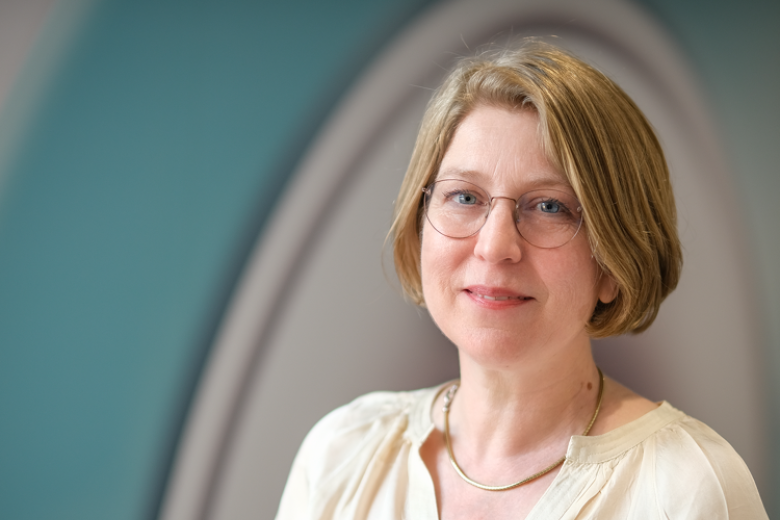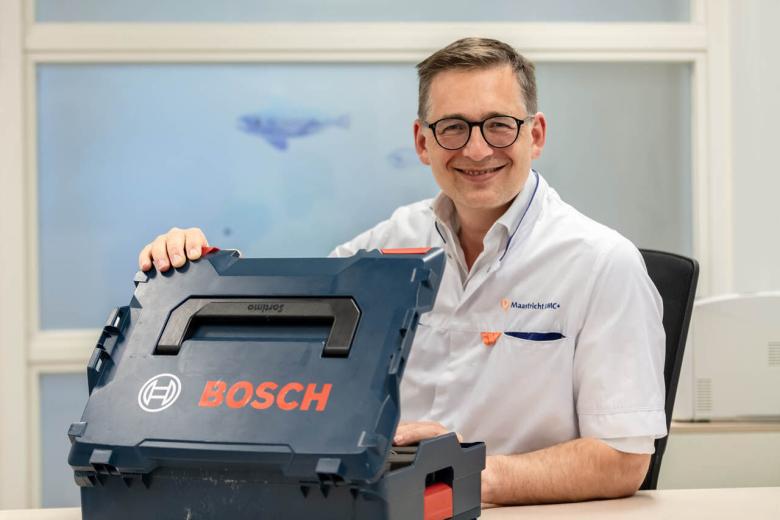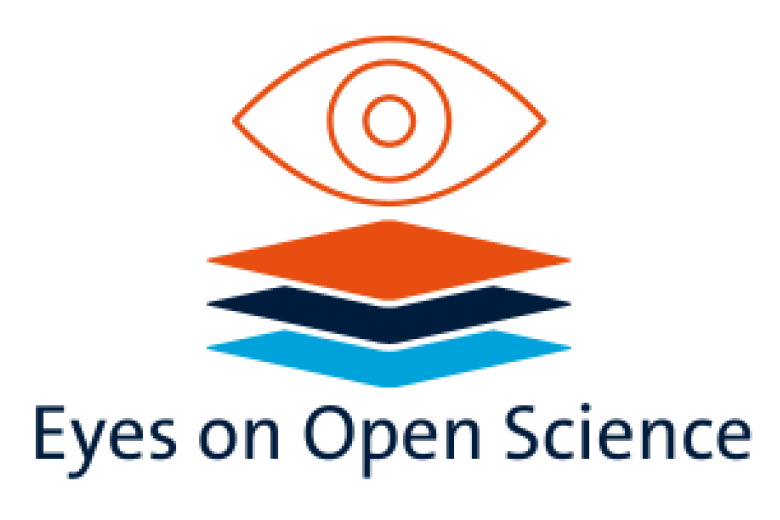Cooperation across borders: the value of a biodiverse world
John Penders stands at the helm of pioneering research into the role of gut bacteria in various diseases in which the gut microbiome may be seen as key to better health. Our gut can be a treasure trove of bugs. The gut microbiome may be seen as key to better health. In this interview John explains why.
Microbes are so much more than pathogens
Consisting of some 100,000 billion bacteria and other microorganisms such as fungi and yeasts, the gut microbiome plays a crucial role in our health and the prevention of disease. It may be a key to more patient-centred treatments and precision medicine in the future, but it is certainly not the Holy Grail for everything. Our gut can however, be a treasure trove of bugs. In a world where microorganisms have long been mainly viewed as threats, NUTRIM Professor John Penders at Maastricht UMC+ is leading research that is fundamentally changing our view of bacteria.
‘For a long time, microbes were mainly seen as pathogens, but we now know that most bacteria are harmless or even essential for our health’, begins Penders. ‘Thanks to new DNA techniques, such as metagenomic sequencing, we can map complex microbial ecosystems without cultivating them first. The gut microbiome, a complex ecosystem in which cooperation is central, influences our digestion, our immune system and even our mental health.’
The hidden world within, a journey through microbial landscapes
Penders' fascination with the gut microbiome began early in his career. As a PhD student, he was involved in the KOALA study, a pioneer study carried out at Maastricht UMC+ that mapped the gut microbiome of more than a thousand newborn babies. ‘This was the first large-scale study of its kind in the world,’ he proudly recalls. ‘We found that disrupted development of the gut microbiome increases the risk of allergies and asthma.’ Now, almost 25 years later, Penders focuses on translating these insights into clinical applications.’ For example, we are investigating how probiotics can help prevent severe intestinal infections in premature babies,’ he explains. In many neonatal intensive care units in the Netherlands, this is now standard practice.
However, Penders' work extends beyond the clinical setting. He is involved in innovative projects such as ENDMIC and SOILS2GUTS, both investigate the relationship between biodiversity in our environment and the health of our microbiome. ‘For example, we are looking at how lifestyle interventions like outdoor woodlands play groups can influence the development of the microbiome in children,’ he says enthusiastically. He is also one of the driving forces behind the Euregional Microbiome Centre, a cross-border initiative in the Meuse-Rhine Euroregion – Maastricht (NL), Aachen (DE) and Liège (BE) – that brings together different areas of expertise in microbiome research.
When asked what drives him, Penders replies, ‘I am particularly excited by the combination between large epidemiological studies and studying microscopic bacteria by combining mechanistic laboratory studies with human studies. It's fascinating to see the incredible impact these tiny organisms have on our health.’
A hidden trove of treasure
‘The gut microbiome is like a hidden organ,’ John Penders explains. ‘We are discovering more and more about how it affects our health, not only in the early years of life, but throughout the whole our lives.’ His face lights up when I ask about the scope of his research. Even later in life, the gut microbiome plays a crucial role in health and disease. ‘We see links between disturbances in the gut microbiome and a wide range of intestinal diseases, such as PDS and IBD, to metabolic diseases and even certain cancers.’
‘By following large groups of patients over long periods of time and repeatedly analysing stool samples, we can link changes in the microbiome to disease activity and dietary patterns.’ In doing so, Penders aims to better diagnose and treat various conditions by better understanding the complex world of our gut bacteria. ‘In PDS, for example, we see evidence of impaired communication between gut and brain. Gut bacteria may play a crucial role in this, by producing substances that affect the intestinal barrier or even have a direct effect on our brain.’
‘We hope to find a microbiome profile that can predict or demonstrate PDS early,’ Penders explains. ‘If we find such a biomarker, it could help us diagnose PDS earlier and better, and it can also help us find effective lifestyle modifications in PDS.’ Looking back at developments in his field, Penders is optimistic. ‘Ten years ago, we could only dream of the insights we have now. With each study we get closer to targeted treatments for a wide range of conditions.’
The microbiome pharmacy
Microorganisms also have a remarkable ability to produce their own pharmaceutical products, such as antibiotics. ‘Besides antibiotics, microorganisms also produce other valuable natural medicines, such as cholesterol reducers, anti-cancer agents and anti-inflammatory drugs.’ With his innovative research, John Penders is contributing to a new view of health, in which microorganisms are no longer enemies, but essential partners in our well-being.
Alongside his work on PDS, Penders is involved in several other projects, including colon cancer research. He explains that microorganisms not only produce medicines but can also influence how medicines work. ‘Gut bacteria can convert medicines in our gastrointestinal tract, which can have both beneficial and adverse effects.’
For example, ‘In some cancer patients, we see that gut bacteria can convert chemotherapy, leading to serious side effects such as diarrhoea. This insight opens doors to personalised treatments. Together with Professor Marjolein Smidt's research group, we are working on methods to predict which patients will develop side effects based on the gut microbiome. Thus, in the future, we may be able to adjust treatments or influence the microbiome itself to reduce side effects.’
When I ask how this research can lead to better treatments, he explains: ‘We would like to turn these insights into practical applications, such as nutritional advice or new microbial therapies.’ He also stresses the importance of targeting specific groups. ‘We see that disturbances in the microbiome do not play an equal role in all patients. By better understanding which subgroups benefit most from microbiome-targeted treatments, we can hopefully make such treatments much more effective.’
The threat of loss of biodiversity
Penders does however warn of the consequences of biodiversity loss. ‘Loss of diversity in the microbiome is one of the reasons for the increase in various diseases, such as allergies and asthma,’ he says. In addition, loss of diversity of microorganisms as well as animals and plants cause an estimated loss of at least one potentially important undiscovered medicine every year. These are potential solutions to currently hard-to-treat diseases that we are losing in this way.’
This is why action is now being taken. ‘There is international cooperation on a gut bacteria storage facility, the Microbiota Vault, a repository for important bacterial species that has been built to withstand natural disasters and wars.’ It is essential that we protect and better understand our natural pharmacy. Only then can we continue to benefit from the power of microbes in fighting disease and in developing new, effective treatments. We can use these in nutritional and lifestyle advice but also in more person-centred treatment and the further development of precision medicine.’
Antibiotics: essential drugs with a dark side
Antibiotics are essential medicines that fight life-threatening bacterial infections and make medical treatments safer. However, overuse or improper use leads to increasing resistance in bacteria, which we need to limit as it poses a major threat to public health. Resistance develops not only in pathogens, but also in gut bacteria. People come into daily contact with bacteria through food, other people, animals or surfaces. Sometimes these bacteria are resistant to antibiotics. Travelling to areas with higher levels of resistance increases exposure to such bacteria. ‘Our COMBAT study showed that 34% of travellers carry resistant bacteria, with rates exceeding 80% for certain destinations.’
Monitoring antibiotic resistance in microbiomes, such as in faeces and sewage, is crucial for early detection of new and resistant bacteria. This helps in understanding and addressing factors that contribute to resistance, such as antibiotic use in agriculture and hospitals.
In addition, antibiotics are also like a double-edged sword and are not selective in the actions they carry out. ‘They kill not only the bad bacteria but also the good ones in our gut,’ he says. Ironically, as a result, the use of antibiotics can sometimes actually lead to an increased risk of other infections. One of our main goals now is to find ways to reduce the damage to the gut microbiome caused by antibiotics. By making the gut microbiome more resilient, we hope to reduce the negative effects of antibiotics and even prevent recurrent infections.’
Clinical applications and challenges
In conclusion, I ask about his vision for the future. ‘I see a future where we routinely use microbiome analyses in clinical practice, combined with other biomarkers and lifestyle data. This will hopefully lead to much more precise diagnoses, preventive and therapeutic options for subgroups of patients and possibly result in tailored treatment plans.’
Reflecting on developments in his field, Penders stresses the importance of a holistic approach. ‘The microbiome remains a complex ecosystem, comparable to a forest. Each singular species has its own unique role and contributes to the whole. Disrupting this balance and diversity can have far-reaching consequences.’ In addition, the microbiome of the gut also interacts with the microbiome of the skin, the respiratory tract, and our natural environment. There will always be this fascinating interaction.’
Advocate for open borders and a collaborative approach
Holistic also in the cross-border collaboration to which Penders refers in his inaugural address and title. The distinctive nature of research at Maastricht entails the focus on translation to the clinic and on prevention, studying the role of the microbiome in disease and health in cohort studies and patient-based studies. What exactly constitutes a ‘healthy microbiome’? This remains a key question which poses a challenge for targeted interventions.
‘Within research, I therefore also advocate open borders and a collaborative approach between researchers from different disciplines (epidemiologists, microbiologists, data scientists and other cross-border disciplines) and medical specialists. It remains endlessly fascinating to work together in conducting further research with impact using the latest DNA and artificial intelligence techniques. Caution is also necessary though. Despite the enthusiasm, it is important not to see the microbiome as the Holy Grail alone,’ says Penders. Expertise in microbiological analysis remains crucial to avoid misinterpretations of data and unrealistic promises.
Looking to the future, Penders is optimistic. ‘By better understanding our microbiome, we can develop new tailored strategies to prevent and treat diseases. It is an exciting time to work in this field, and I look forward to seeing what discoveries we will make next.’ His fascination with all our microscopic bugs working harmoniously together therefore remains entirely undiminished.
Text: Danielle Vogt
Photo: Appie Derks
Watch the inaugural lecture of John Penders
Did you enjoy reading this article? More NUTRIM research stories.
“By making use of the natural strength of microorganisms, we can boost vitality and prevent or treat diseases.”
John PendersAlso read
-
The spin doctor: Resonance between imaging and health
Prof. Jeanine Prompers: Visualizing metabolism at the organ level helps tremendously in prevention and personalizing health care. An interview with newly inaugurated NUTRIM Prof. Jeanine Prompers.

-
Inauguration of plastic surgeon Andrzej Piatkowski
NUTRIM Professor of Innovative Reconstructive Surgery about his pioneering work in the field of breast reconstruction.

-
NUTRIM and Open Science
New blog on open science within our research institute, kicked off by Assistant Professor Egon Willighagen
